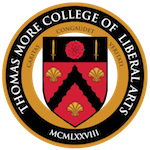In The Idea of a University, Blessed John Henry Newman coined the phrase “true enlargement of mind” to indicate the excellence at which a liberal education aims, explaining that it is a “power of viewing many things at once as one whole, of referring them severally to their true place in the universal system, of understanding their respective values, and determining their mutual dependence.”
Although he elsewhere refers to such a power as characteristically “philosophical,” it is plainly both the knowledge of architectonic principles and the familiarity with the substance of the various arts and sciences of which a liberal education is composed, including such pursuits as history, literature, rhetoric, mathematics, and the study of the natural world.
To a Catholic, of course, such an education includes—and as its ruling part—a sufficient quotient of Sacred Doctrine to enable the student to join Newman in affirming that faith is “an intellectual act, its object truth, and its result knowledge.”
To the end of specifying a common standard of true enlargement of mind, the President and Fellows declare that the graduates of the College’s program of studies should be able . . .
- To read Latin or Greek at the intermediate level of proficiency.
- To express themselves in clear, cogent, and persuasive spoken and written English.
- To offer a thoughtful and careful analysis of the meaning and structure of an English poem.
- To recognize pattern, harmony, symmetry, and order in works of nature and art.
- To know the difference between knowledge and opinion, and to know when a proposition is held from experience or as the result of argument from prior principles.
- To distinguish the various liberal arts and sciences by their proper subject matters, principles, and modes of argument.
- To demonstrate an understanding of the principal themes, figures, literary and artistic works of Western Civilization, to situate them in their historical context, and to see and set them in conversation.
- To give an account of the relationship of the Roman Catholic Church and Western Civilization to the major Eastern cultures and religions.
- To give an account of the way in which nature acts for an end, and to be able to distinguish between the philosophy of nature and modern empirical science.
- To argue from common experience to the nature and immateriality of the human soul.
- To explain what is meant by happiness.
- To explain what is meant by the common good.
- To give an account of the various meanings of the term “wisdom”—speculative and practical, philosophical and theological, acquired and infused.
- To give an account of the way in which theology is a science.
- To demonstrate an understanding of how the whole of the Sacred Scripture tells of the nature, person, and mission of Christ.
- To articulate and defend the mysteries of the faith contained in the Creed.
